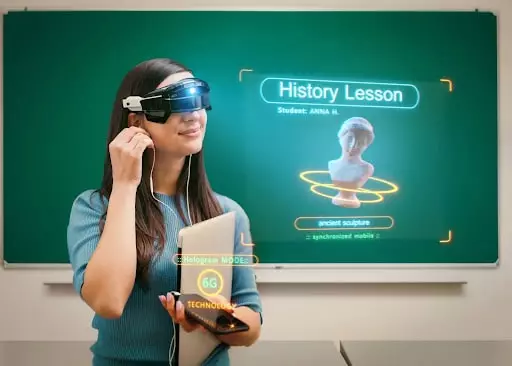The education landscape is undergoing a profound transformation with the advent of decentralized education, also known as DeEd. Unlike traditional education systems that rely on centralized authorities and physical institutions, DeEd leverages decentralized technologies to create a distributed network of learners, teachers, and educational resources. This groundbreaking approach overcomes geographical barriers and offers access to education to anyone, anywhere. As the world grapples with the aftermath of the Covid-19 pandemic, which exposed the flaws in traditional education, DeEd presents a promising solution to the challenges faced by the industry.
Numerous studies have highlighted the critical role of education in both health and economic outcomes. A recent study published in The Lancet, a respected medical journal, revealed that each year of education reduces mortality rates by 2%. Education is, quite literally, a matter of life and death. Furthermore, the World Bank estimates that the current generation of students could experience a staggering $21 trillion in lost salaries due to the Covid-19 lockdowns and subsequent school closures. These figures underscore the urgency for transformative changes in the education sector.
The Outdated School System: A Call for Change
The traditional school system, established in the 1800s, was designed to maintain social order and foster obedience. However, it has remained largely unchanged since its inception, failing to adapt to the evolving needs of learners. The decision-making process within the education industry is often hindered by financial and political factors, as highlighted by the World Bank. It is clear that the education system must undergo a paradigm shift to meet the demands of the modern world.
One of the most significant advantages of DeEd is the eradication of physical and geographical barriers to education. As long as individuals have access to the internet, they can engage in meaningful learning experiences. Moreover, DeEd empowers learners by personalizing the curriculum to suit their unique needs and interests. Gone are the days of overcrowded classrooms and a one-size-fits-all approach. With DeEd, students can choose subjects, modules, and techniques that resonate with them, leading to more effective and engaging learning experiences.
The changing landscape of education is driven by technological advancements, social changes, and economic considerations. The rise of blockchain technology and artificial intelligence has paved the way for the construction and delivery of customized learning experiences. These emerging technologies offer transparency, security, and novel possibilities. Moreover, the ever-evolving job market demands a more flexible and adaptable approach to education. DeEd bridges this gap by providing tailored learning opportunities that align with the demands of modern careers.
Numerous groundbreaking projects are spearheading the DeEd movement. For example, TinyTap, an education-technology (edtech) project, offers a vast library of over 250,000 educational games in 24 languages. By venturing into the Web3 space, TinyTap introduces Publisher NFTs, which allow educators to earn passive income by granting co-rights to their courses. Another notable project is Hooked Protocol, a social learning platform that combines gamification and monetary rewards through interactive dApps like Wild Cash. Users receive cryptocurrency tokens for completing quizzes, creating a dynamic and engaging learning environment.
Open Campus takes a community-driven approach to DeEd by tokenizing educational materials and enabling teachers to monetize their work. This protocol addresses the global shortage of teachers identified by the World Bank and recently launched a $10 million fund to incentivize the creation of learning materials in various formats. Collaborating with platforms like TinyTap, Open Campus embraces community governance to ensure that decision-making remains in the hands of users, offering a much-needed departure from top-down approaches in the education industry.
While the potential of DeEd is vast, challenges remain on the path to widespread adoption. One critical issue is addressing the digital divide to ensure equitable access to education for all. Additionally, maintaining the quality and consistency of education in decentralized settings requires careful consideration. Furthermore, effectively onboarding users to unfamiliar technological environments is crucial for the success of DeEd initiatives. Despite these hurdles, the transformative potential of DeEd in creating an inclusive, equitable, and accessible educational future demands the active embrace of institutions and individuals.
Decentralized education is revolutionizing the way we approach learning. By leveraging decentralized technologies, DeEd opens up a world of opportunities for learners of all ages and backgrounds. The days of rigid, one-size-fits-all education are fading away as personalized and engaging learning experiences come to the fore. With the support of emerging technologies and pioneering projects, DeEd has the potential to shape the future of education and ensure that no learner is left behind. It is time for institutions, educators, and learners to embrace the transformative power of decentralized learning and pave the way for a prosperous educational future.



Leave a Reply